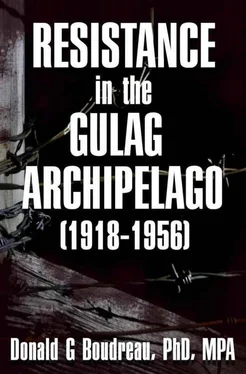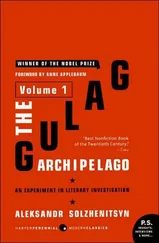Aron, Leon. “Death and the Dictator,” Soviet History, [Reviews of Stalin a Biography by Robert Service, Belknap/Harvard University and Stalin And His Hangmen, The Tyrant and Those Who Killed For Him by Donald Rayfield, Random House], Book World, The Washington Post, Sunday April 17, 2005, p. 3.
Beichman, Arnold. “Crimes without just punishment,” The Washington Times, January 9, 1990, p. F1, col. 5.
Bozell III, L. Brent. “ ‘Circle’ of Stalinist Terror,” [Russian director Andrei Konchalovsky’s film, “The Inner Circle”] The Washington Times, February 15, 1992, p. C3, col. 4.
Cohen, Stephen F. “An Anti-Stalinist Tide Is Flowing Again,” International Herald Tribune, Opinion, February 3, 1987, p. 4.
Cohen, Stephen F. “Straining Mightily to Uproot Stalinism,” International Herald Tribune, March 11, 1987, p. 4.
Dobbs, Michael. “Inside Stalin’s ‘Marble Gulag’, Soviets Allow rare Visit to Siberian Camp for Uranium Miners,” The Washington Post, Final, October 1, 1989, p. 1, col. 2.
Dreher, Rod. “The Writer, The Pope, Tragedy Of The Half-heeded, Their words like silent Raindrops fell…’” The Free Lance-Star, Fredericksburg, Va., Opinion, [ethical and ideological similarities between John Paul II and Alexander Solzhenitsyn], August 16, 2008, p. A6, col. 1.
Finn, Peter. “Mourners Pay respects to Solzhenitsyn, Though Thousands View Writer’s Body, National Grief Isn’t Apparent in Russia,” The Washington Post, the World, August 6, 2008, p. A12, col. 1.
Finn, Peter. “Russia’s Heroic Literary Curmudgeon, Onetime Dissident Acclaimed Even by Those Who Disagreed With Him,” The Washington Post, August 5, 2008, p. A6.
Fitzpatrick, Sheila. Stalin’s Peasant’s, Resistance & Survival in the Russian Village after Collectivization. Oxford: Oxford University Press, 1994.
Gertz, Bill. “U.S. POWs sent to die in gulags,” [A Russian government search of Soviet secret police files has revealed that American prisoners of war were sent to die in gulag labor camps after World War II.] Washington Times, February 17, 1992, p. A1, col. 1.
Glasser, Susan B. “Gulag Survivor Wages Battle Against Oblivion,” The Washington Post, September 14, 2003, p.A20, col. 1.
Heintz, Jim. “Author Solzhenitsyn buried in Moscow,” The Free Lance-Star, Fredericksburg, Va., August 7, 2008, p. C2, col. 1.
Hiatt, Fred. Russians Seek Rosier Past, Even Revising Stalin Image,” [“Russians are romanticizing their prerevolutionary era and have even begun to question whether Joseph Stalin and his gulag were as monstrous as perestroika -era revelations suggested.”], The Washington Post, October 30, 1994, p. A31, col. 1.
Hochschild, Adam. “A Toast to Stalin’s Ghost, Why Russians Still Mourn the Bloody Yesterday,” The Washington Post, May 5, 1995, p. C1, col. 4.
Hockstader, Lee. “While Solzhenitsyn Thunders, Russian lawmakers Barely Clap, Returned Exile Issues Stern Warning On Poverty and the Abuse of Power,” the Washington Post, October 29, 1994, p. A23, col. 1,2.
Hockstader, Lee. “Stalin Shrine to Reopen-Minus Deification,’ The Washington Post, October 12, 1993, p. A14, col. 1.
Hoffman, David. “A Prophet Without Honor In Profit-Driven Russia, Solzhenitsyn Perceived as ‘Out of Touch,’ Boring,” The Washington Post, September 27, 1995, p. A26, col. 1.
Hoffman, David. “Nostalgic for Lenin, Long-Dead Leader Is Still Exalted by many Who Equate Him With the Order Russia Now Lacks,” The Washington Post, April 8, 1996, p. A16, col. 1.
Hoffman, David. “Site of 1,100 Stalinist Executions Found,” The Washington Post, July 13, 1997, p. A21, col. 1.
Hochschild, Adam. “Bibliography and Acknowledgments,” in The Unquiet Ghost, Russians Remember Stalin. New York: Viking/Penguin Books, 1994:289-293.
Jack, Andrew. “Gulag’s economic prisoners glimpse the chance of escape, Pioneering World Bank pilot scheme of assisted migration offers hope to poverty-stricken inheritors of Stalin’s artic wastes,” Financial Times, July 17, 2002, p. 1, col. 1.
Jones, Radhika. “APPRECIATION, Aleksandr Solzhenitsyn. The prophetic power and gentle touch of the man who could not be silenced,” TIME Magazine (USA), vol. 172, I ssue 7, p. 63.
Kaiser, Robert G. “Appreciation, The Giant Of Russian Literature,” the Washington Post, Va. Ed., August 5, 2008, p. C1, col. 5.
Kennicott, Philip. “The Specter Of Joe Stalin, Scholars Assess Legacy 50 Years After His Death,” The Washington Post, March 6, 2003, p. C1, col. 1.
LaFraniere, Sharon. “Russia Keeps Stalin Locked In Its Past, Decades On, Nation Has Yet to Confront Murderous Reign,” The Washington Post, Home Edition, September 24, 2002, p. A1, col. 1.
Lipman, Masha. “Russia’s search for an identity,” The Washington Post, November 3, 2009, p. A17, col. 5.
Lipman, Masha. “Reins on Remembrance, 70 Years After Stalin’s Purge, Candor has Its Limits,” The Washington Post, Va. Ed., August 22, 2007, p. A17, col. 2.
Lipman, Masha. “On a Mission For Russia,” [Solzhenitsyn], The Washington Post, August 5, 2008, p. A19, col. 5.
Litinov, Pavel. “No American Gulag,” The Washington Post, Va. Ed., June 18, 2005, p. A19, col. 4.
Lord, Lewis. “A reign of terror, a world away,” 70 Years Ago, U.S. News & World report, June 30/July 7, 2003.
Lourie, Richard. “IN MEMORIUM, The Unyielding Solzhenitsyn, A Russia scholar sums up the life and work of a 20th century master,” Book World, The Washington Post, August 10, 2008, p. 2.
Nadler, Gerald. “Solzhenitsyn will return to Russia soon, wife says,” The Washington Times, May 24, 1992, p. A13, col. 1.
Pfaff, William. “The Stalinist Damage to be Undone Is Enormous,” Opinion, International Herald Tribune, March 30, 1987, p. 4.
Remnick, David. “As Gulag Fades, Warden Is Proud of His Career, Political; Prisoners Still Endure Cruelties,” The Washington Post, April 28, 1991, p. A1, col. 1.
Remnick, David. “KGB Plot to Assassinate Solzhenitsyn Reported, Russian Tabloid Says 1971 Attempt left Dissident Burned,” [The Russian crime tabloid Top secret reports that the KGB secret police poisoned Alexander Solzhenitsyn 21 years ago in an attempt to assassinate him with the same lethal chemical used to kill Bulgarian dissident, Georgi Markov, in London in 1978,] The Washington Post, April 21, 1992, p. D1, col. 4.
Remnick, David. “Stalin’s Lethal Legacy Of Filth, 5-Year Plans, City Lies in Economic, Ecological Ruin,” The Washington Post, Final, May 21, 1991, p. A1, col. 4.
Remnick, David. “Witness to the Gulag, Soviet publication of Solzhenitsyn’s great work is an extraordinary event,” The Washington Post, July 9, 1989, p. B7, col. 1.
Rosenfeld, Stephen S. “The Hard-Liners Had It Right, And now the Soviet documents are coming out to prove it,” The Washington Post, January 20, 1995, p. A21, col. 2.
Satter, David. It Was A Long Time Ago, And It Never Really Happened Anyway: Russia and the Communist Past. New Haven, CT: Yale University Press, 2011, 400pp.
Shipler, David K. “Anatomies of a Murderer,” [reviews of Stalin In Power, The Revolution From Above, 1928-1941 by Robert C. Tucker, Stalin, The Glasnost Revelations by Walter Laquer, and Stalin’s War Against the Jews by Louis Rapoport.], The New York Times Book Review, November 18, 1990, p. 2.
Solzhenitsyn, Aleksandr. “The Relentless Cult of Novelty And How It Wrecked the Century,” The New York Times Book Review, February 7, 1993, p. 3.
Stent, Angela. “What Is To Be Done?” [Her review of Rebuilding Russia by Aleksandr Solzhenitsyn, Translated from the Russian by Alexis Klimoff, Farrar Straus and Giroux], The Washington Post, Book Review, February 16, 1992.
Sturua, Melor. “’How A Tyrant Made Us Believe In Him’” PARADE Magazine, July 28, 1991, pp.4-7.
Читать дальше












